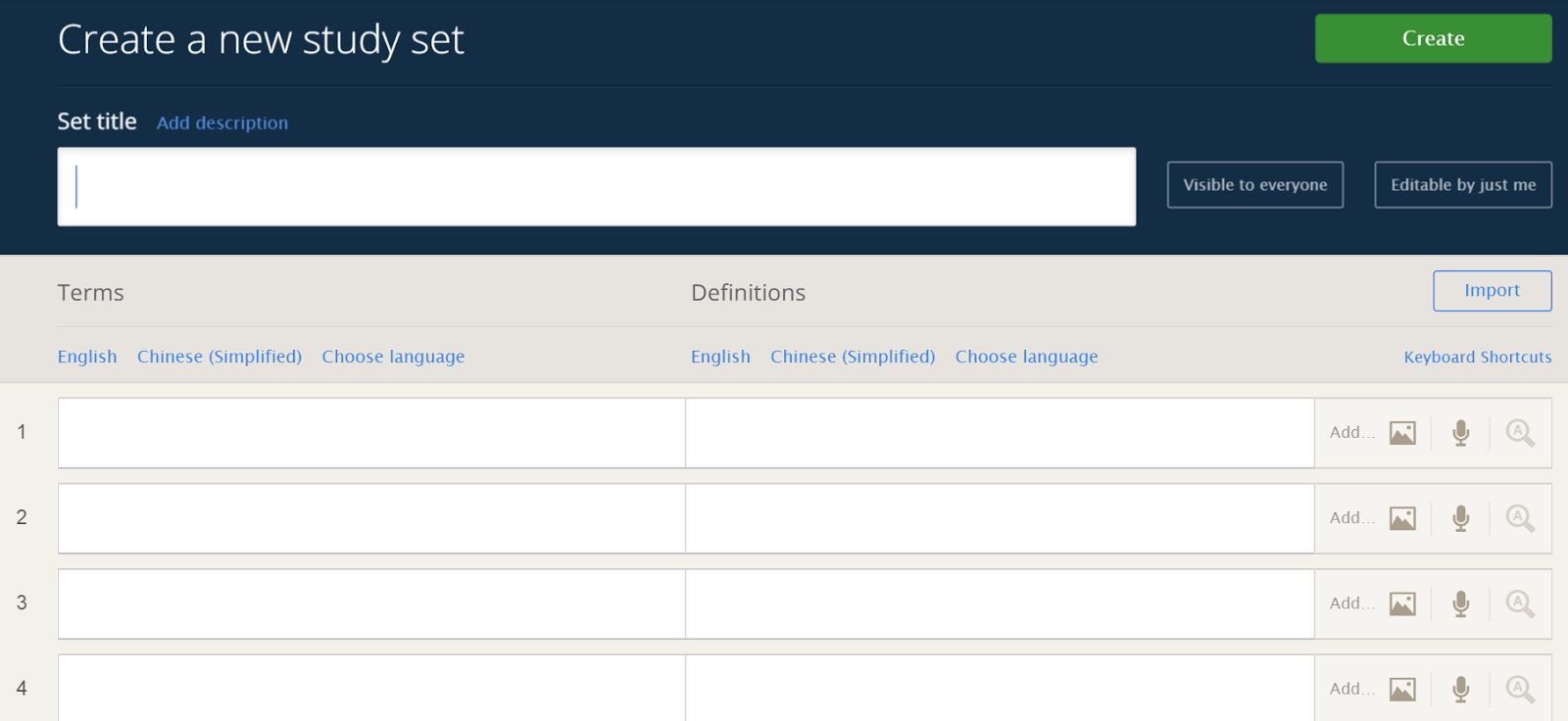Quizlet is really an excellent tool for helping students to learn vocabulary by themselves. Basically, it is a website for generating online flashcards which traditionally speaking have a word on one side and its definition (or translation) on the other side. But you can also use it in some creative ways, which can be great to help learners pick up lexical chunks instead of single words (students can also use it to create their own sets of course).
After having signed up for a free account, you can start creating a set of vocabulary that you want your students to learn. Images and voice can be added to help memorization (see picture A). And you can also import those from other teachers' which can then be modified. When you finish creating a set, you can share it with students or print it out and use it in classroom activities.
 |
| picture A |
BUT this is not the real reason that this tool appeals to me! I was very impressed and inspired by the sets created by leosel (an ELT teacher's username in Quizlet). He turns the set of vocabulary into sets of collocations or other lexical chunks, which I think is really helpful in improving students' writing ability. Here are two of the sets that leosel has created on Quizlet.
Outcomes Unit 5 helps students to learn collocations, which instead of giving definitions to each term, leosel put the rest of the words in the collocation under the definition column. And the other set
politicians & embarrassing situations provides the first letter of each word in a sentence or an expression, which helps reinforcing students' understanding of the use of these words. This site provides different practice forms for each vocabulary set (see picture B). Learners can choose the one (or several) according to their own needs- wanting to strengthen their spelling, to study the pronunciation and meaning, to test their memorization, etc. I personally found Scatter very interesting, since I am a big fan of learning lexical chunks and this is just perfect for conducting collocation exercise. It puts words and their "definitions" (may not be definitions) randomly and requires learners to match them. If matched correctly, they will disappear on the screen.
 |
| picture B |
Better still, this tool has its app which allows learners to study on their smartphones. This really increases its convenience and makes the study flexible! Other advantages are: users can create folders and organize the vocabulary sets in their own ways; teachers can create their own classes and update sets regularly; students can join the class available on this site according to their interest (some of them require requests first).
Finally, I would say this tool is absolutely wonderful for teachers to design lexis exercise as well as for individual learning (for students who are preparing for language exams such as IELTS and are suffering from a lack of vocabulary to, for example,complete the writing tasks). Limitations? I guess one is that the pronunciation the website provides may not always work well. In addition, if there can be more options in PLAY (games that help practising vocabularies), I think this tool will be more popular, particularly for learners at a younger age.

This is a great tool indeed. Lexical chunks can really help some learners develop oral fluency and thus promote interactivity in the classroom. You seem to have mastered a thorough understanding on this tool and its various applications. I find your argument on using this tool for IELTS exam preparation very interesting and I would love to see some more examples. Perhaps I will experiment myself with it in due time. Thank you for yet another informative post.
ReplyDelete